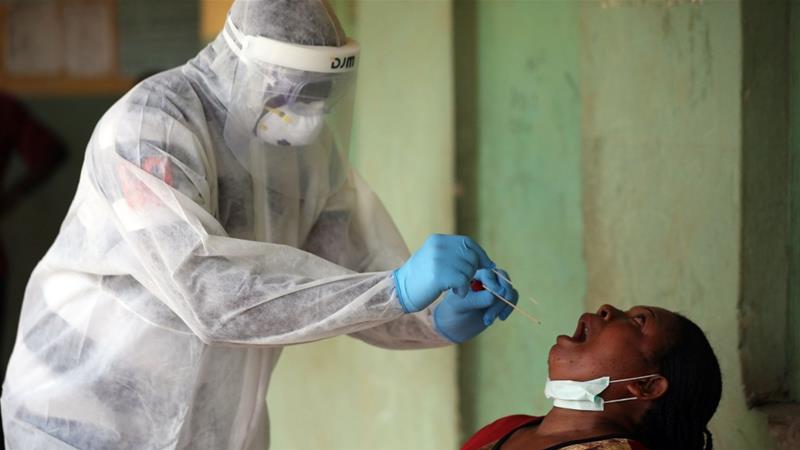Nigeria has announced plans to ease movement restrictions imposed late last month on three key states in a bid to contain the spread of the coronavirus pandemic.
In a televised speech on Monday, President Muhammadu Buhari said he had “approved a phased and gradual easing of lockdown measures in FCT, Lagos and Ogun states effective from Monday, May 4, 2020”. FCT stands for Federal Capital Territory and includes the national capital, Abuja.
Buhari said “the federal and state governments have jointly and collaboratively worked hard on how to balance the need to protect health while also preserving livelihoods, leveraging global best practices while keeping in mind our peculiar circumstances”.
But the president also announced new measures including a nationwide 8pm-to-6am curfew, compulsory wearing of facemasks and a ban on “non-essential” travel between different regions.
He also announced an immediate two-week lockdown in Kano, the country’s most populous state, after officials said they were investigating a series of “mysterious deaths”.
The government in the northern state said preliminary investigations revealed the deaths were caused by complications from hypertension, diabetes, meningitis and acute malaria.
Economic burden
Nigeria, Africa’s most populous country with some 200 million people, has recorded 1,273 cases of coronavirus and 40 deaths.
The country first introduced measures to mitigate the spread of the coronavirus on March 30 by announcing a total lockdown of the commercial capital, Lagos, neighbouring Ogun and Abuja.
The decision has taken a toll on economic activities, inflicting financial pain on millions of informal labourers who rely on daily pay to survive.
The president acknowledged that this had partly informed the decision to ease the restrictions.
“Many of our citizens have lost their means of livelihood. Many businesses have shut down,” Buhari said.
“No country can afford the full impact of a sustained lockdown while awaiting the development of vaccines,” he added.
“We reviewed how our farmers can safely plant and harvest in this rainy season to ensure our food security is not compromised.”

![A volunteer carries food parcels to distribute to vulnerable residents, during a lockdown by the authorities in efforts to limit the spread of the coronavirus disease (COVID-19), in Lagos, Nigeria April 9, 2020. Picture taken April 9, 2020. [Temilade Adelaja/Reuters] A volunteer carries food parcels to distribute to vulnerable residents, during a lockdown by the authorities in efforts to limit the spread of the coronavirus disease (COVID-19), in Lagos](https://www.aljazeera.com/mritems/Images/2020/4/21/e697b124a54e4d9bac5aab1e1ba9060e_18.jpg)




